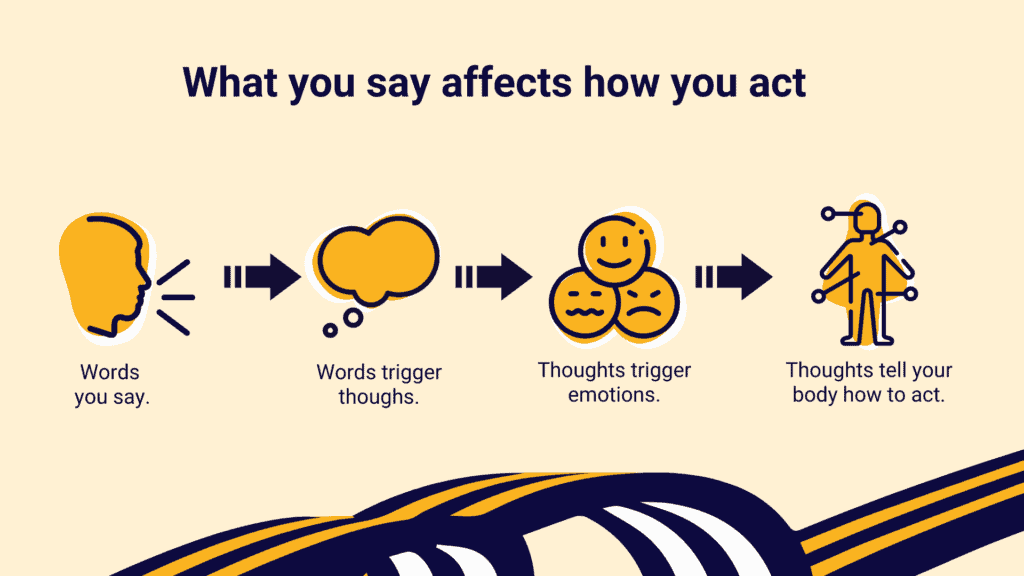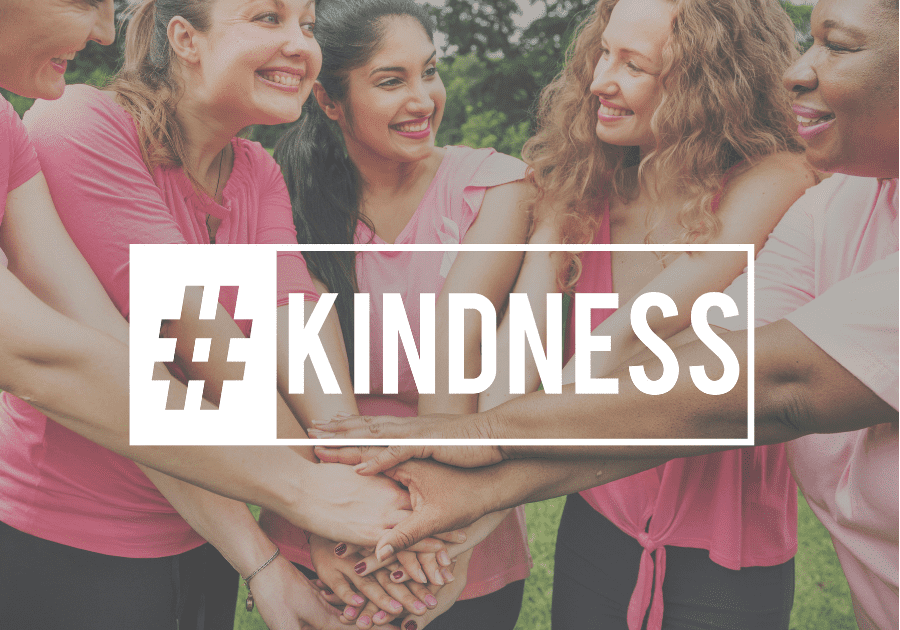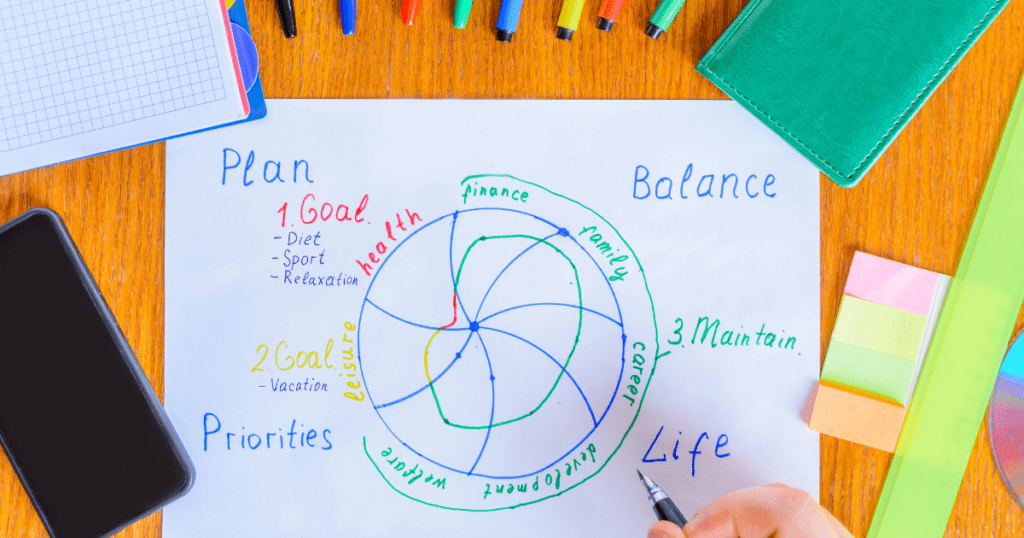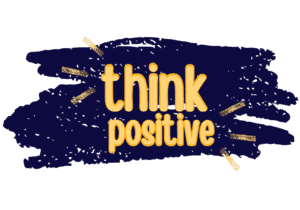4 Ways to set meaningful goals in life (and stick with them) with kindness
Before you read this - are you a person who sets HARD goals in life? How are those goals working for you? If things are going great - don't bother reading this article. BUT (which is one of my favorite words because it is in the BUTS that change happens) if you notice that your goals are starting to break down your mental wellbeing or are harming your physical health, read on. Or perhaps, you set goals only to discover that after a few short days the goal has been pushed aside. This article is also for you - keep reading. We’re going to show you a new model for setting compassionate goals, with kindness.
Health and fitness goals are at the top of the list for most goal setters
Have you ever said to yourself,
"I want to do more exercising.”
“I need to improve my fitness."
"My diet has got to improve."
"It's time I buckle down and lose weight."
When you are down on yourself and feeling like there is something you have got to change, it can lead to setting lofty, unrealistic goals that you want to achieve RIGHT NOW. You may think, "If I want it, I will push through it - I can do it," but within a few weeks, you’re disappointed when you fail. Maybe you tried to do too much too soon. Trying to force the goal into your life, only to get frustrated because your plan had a hard time fitting in with the ups and downs of your everyday life.
When you set a goal because you don't like something about yourself, it will more than likely fail.
How you decide to word your goal matters
For example, when your goal is, "I want to exercise more" (which can feel negative), it implies that what you are currently doing is not enough, leading to negative thoughts. You’ll have a hard time being successful and lasting long-term with goals created from a shameful or guilty place.
Achieving a goal is about making it realistic. For example, a weight-loss goal is not just about weight loss; it's also about what that weight loss means to you. An example of a positive reason to lose weight is to improve your health, rather than your looks. Understanding why you want to reach your goal will help you focus on framing your goal with positive words, which help make them more attainable.

What is a self-compassion goal?
It seems so much easier to be tough on yourself; we do it all the time, probably more than you even realize. When you approach yourself with compassion, you can forgive your missteps, accept your weaknesses and show yourself kindness. Unfortunately, treating yourself with kindness is not as easy as it sounds.
Creating self-compassionate goals in life means setting goals that consider ways to forgive, accept, and love yourself when life gets real. You may think to reach a goal, you must be hard on yourself and push through at all costs - because being easy on yourself will not get results.
However, when things don't go as planned, talking to yourself with self-compassion is much more beneficial than criticizing yourself (and there is evidence to prove this!)
A 2012 study published in Personality and Social Psychology Bulletin states that people who practice self-compassion when goal setting are more successful at achieving their goals.
When you treat yourself with compassion, you view weaknesses, failures, and mistakes as a natural part of life, leading to more motivation and improved goal performance.
Being honest with yourself is a big step towards achieving success. Pay attention to what is going on in your life; how can you fit your goal into your life? It's tempting to go for lofty goals, but you often end up putting too much stress on yourself to achieve by a specific deadline. The stress of the plan generally causes the goal to fail.
Setting positive, compassionate, and realistic goals
Design your goals with a blend of positivity, realism, and self-compassion.
When you create meaningful goals in life that include self-compassion, you are kind and forgiving of yourself. You give yourself grace. You understand that no one, including you, is perfect, and you don't judge or criticize yourself for failure, shortcomings, or weaknesses.
Wanting to change or improve something in your life because that's what you want for yourself is setting a meaningful goal, and you know it will truly enrich your life. When you are setting your goal, ask yourself,
"Am I doing this for me, or someone else?"
If the answer is YOU, you are setting yourself up for success.
What does a self-compassionate goal look like?
Self-compassion is about the relationship you have with yourself.
When is the last time you set a goal to improve your diet only to feel like a failure when you grabbed a handful of M & M's (which led to several handfuls), and then wonder why you ever thought dieting was a good idea?
Research shows that when people treat themselves kindly rather than harshly, they are more likely to believe they can improve, correct mistakes, and continue with their goals in life even after messing up. This is significantly different thinking than calling yourself names and criticizing yourself, which has been proven to lead to procrastination, stress, and rumination—none of which motivate you to continue pursuing your goal.
A compassionate goal looks for possibilities.
What is the greatest motivation?
Many people are self-critical these days, which has been linked to higher anxiety and depression rates. Not exactly a great motivator.
Self-critics also have lower beliefs in their abilities, which impacts the success of their goals. Being in the habit of self-criticism is a way to protect yourself from failure. This can show up as feeling that it’s easier to not try than to risk failure, not admitting there is something you want to change, or blaming the problem on something or someone else.

How does setting goals with self-compassion differ from goals set because you want to avoid something?
The motivational power of self-compassion, self-compassionate people have high expectations of themselves, but they are more accepting and positive when things don't go as planned. Research shows that people who practice self-compassion:
- Use failure as a chance to reflect, learn and try something new, rather than become stressed and angry.
- Take action and try because they want to learn and grow, not because they need to impress themselves or others.
- Engage in healthier behaviors like sticking to weight-loss goals, exercising, eating better, and moving more in general.
Self-compassionate goals are not a way to set manageable goals; they are your best plan for setting goals in life that nurture you and help you reach your full potential.
Ken Wilber, a philosopher and one of the greatest minds of our time (yet flawed, so very flawed, as we all are) said,
“Nothing is ever 100% right or wrong; we learn and improve based on history [your past]... honor your privilege, you can change your behavior and action by changing your thoughts.”
There is science to back this up; it is called neuroplasticity. In layman's terms, this means you can change your mind by the things you say.

Neuroplasticity means that the brain is reprogrammable. To do so, you can choose a trigger, which causes an action that leads to a positive result. For example, you can change the words you say to yourself, which changes the automatic patterns of your thinking, which will then make it easier to set goals that include self-compassion.
By practicing self-compassion, you're not only developing realistic, sustainable goals, you're also rewiring your brain for even more success in the future.
It is all about treating yourself with kindness
When you treat yourself with kindness, you are MORE LIKELY to get your desired results.
Self-kindness is being gentle towards yourself in the face of pain and failure, rather than being critical. It also realizes that suffering and personal failure are part of being human. When you learn to notice the negative things you say to yourself and react to them with non-judgment - only with awareness that they are there - feelings are not suppressed, they are addressed.
Self-compassion is a way of nurturing yourself to reach your full potential.
The results of a goal (like getting healthier) will look different for everyone, so it's important first to define what it looks like for you, then create a manageable plan to get you where you want to be by identifying what you will need to succeed.

Goals created with KINDness
[K] Keeps you motivated
What is it that you want?
What is the intention, the “why behind the why” for wanting your goal?
Knowing your deeper reason keeps fueling you, even when you don't get the results you want.
Set the intention over the result of the goal.
Fill in this sentence:
I am doing this because _________________________________________________.
(Answer why is the goal so important?)
People who have made lasting changes in their lives are the people who dig deep and know the reason for their goals. Get specific.
[I] Inspect the data and monitor the process
Monitor your progress by inspecting the data. Observe, be curious, and reflect.
- What happened?
- What did you do differently this week?
- How were you consistent?
Know why things went well or why things went poorly. Monitor the reason behind the data.
[N] Normal, down to earth
Figure out how to make your goal normal, down to earth, and practical in your life. Setting goals with unrealistic expectations that don't fit into your life as you know it will fail.
Have you set a realistically achievable goal?
[D] Do
There is a balance between thinking and doing. Thinking is important, but do it less. Do [take action] 70% of the time and think/plan/set a deadline 30% of the time.
Do more than you think.
A bit of self-reflection
As I reflect on the numerous health and fitness goals I have set for myself in the past, I realize how much I have changed the process I use to set goals and track my progress. In the past, goal-setting was about pushing through; it was black and white, the goal was set with not much thought as to how it would fit into my life. I believed that if I wanted it to happen, I could will myself to do it, come hell or high water. The numbers alone proved progress, and goals were only successful if achieved or, better yet, over-achieved.
Did hard-ass goal setting work?
Yes, it did. Until it didn't, but it worked for a long time—longer than you might imagine. I pushed through, I did hard things, I was superhuman. Until it all came crumbling down. Once it started crumbling - I couldn't stop the landslide - guilt, self-doubt, comparing myself to others, telling myself something was wrong with me because I couldn't keep on keeping on.
It was in the moments of self-loathing that I knew there was a better way. Thank goodness for my master level training with Precision Nutrition and the work of Kristin Neff, Ph.D.on Self-Compassion.
How to dig deep into setting meaningful goals in life
If you are a recovering perfectionist, black and white thinker, or an all-or-nothing-highly-driven-to-succeed type person, and you are starting to realize the goals you are setting just are not working for you anymore, give meaningful goal setting a try and pair it with KINDness.
Get some paper and a pen. Have your favorite drink beside you and be ready to dream. Think about big and beautiful, wildly audacious goals you want in your life and out of your life. Make a list of them. In which of these eight areas would they fall, and how would they improve your life?
- Health
- Career
- Money
- Personal Growth
- Family & Friends
- Significant Other/Romance
- Physical Environment
- Fun & Recreation
Categorize your list.
Example goal: "To be able to read as many books as I want."
That could fall until 4. Personal Growth or 8. Fun & Recreation, select the one you think is the best fit.
Another example: "To be able to go for walks in the evening with my spouse."
This could be 1. Health or 6. Significant Other/Romance - decide which category is best.
Make sure you are being honest. This only works if you tell yourself the truth.
Once you are done ask yourself these questions.
- Which category has the most goals?
- Which category has the least?
- Did this match where you normally place the most focus in your life? How would you explain what you see?
- What goals feel most powerful to you?
- Does anything surprise you?
Take the most powerful goal. Then, put it into the KINDness strategy and do it.
I wouldn't be worth my salt as a coach if I didn't ask you to show me what you have created and accomplished.
I wholeheartedly invite you to share your journey with me.
You have an opportunity to connect with me immediately by writing in the comments. If you want to have a deeper conversation, contact me by using the information found by clicking the orange button under my photo.
This will be your year! When you set meaningful goals in life which are full of KINDness, your ability to stay motivated and achieve results will be life-changing.
Peace, Love & Kindness

Michelle Johnson Jerome is an expert on busting through perfectionism. She is passionate about helping others live life with purpose and joy. By drawing on her extensive experience as a nutrition coach, personal trainer, and yoga instructor she helps develop a realistic approach to goal setting that allows you to make progress and stop obsessing over mistakes.
Find other articles written by Michelle on her coach profile. Discover your "easy button": learn how to manage life's unpleasant parts so you can move forward, reach your goals, and live your best life.






